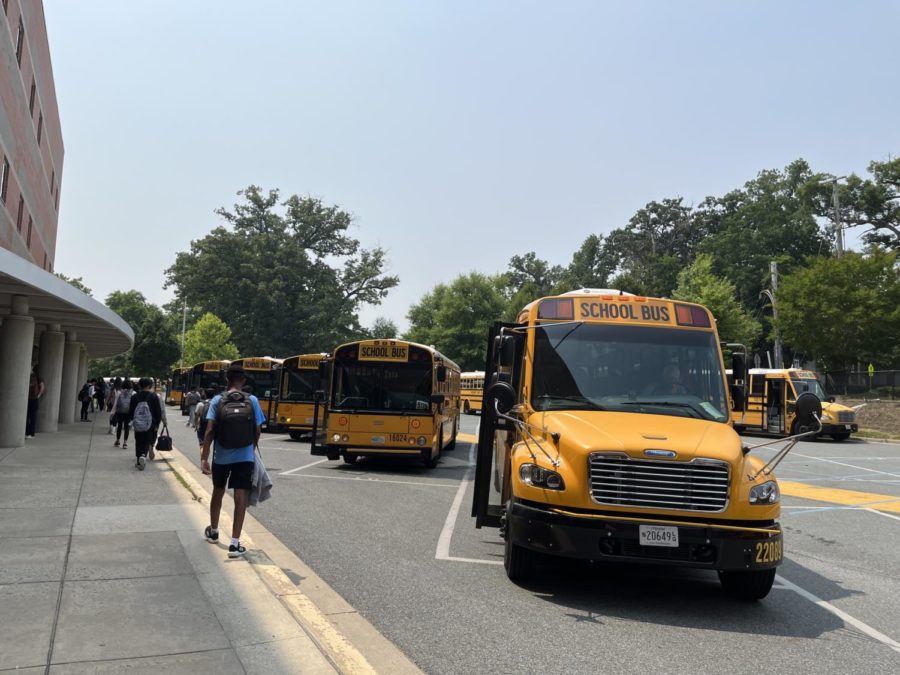Canadian Wildfires pollute Montgomery County air
Microdust contributes to haze, which blocks the sight of clouds.
June 8, 2023
Following the onset of the Canadian Wildfires and the “unhealthy” air quality index surrounding the Montgomery County region, Superintendent Dr. Monifa McKnight determined that school systems would remain open on Thursday, June 8. Safety precautions, including operating through primarily indoor activities (e.g. indoor recess), have been implemented.
The Canadian wildfires appear to have been triggered by elevated temperatures and an arid climate. These conditions can cause lightning, which triggered the fires in Quebec. However, human activity such as “poor forestry management” and “dead trees left to stand” have also been deemed responsible for the intensity of the fires. Smoke from these wildfires has ventured to the United States, provoking school districts across the nation to release students early.
A petition urging the closure of MCPS schools due to poor air quality and smoke has circulated and as of Thursday afternoon, has garnered over 19,000 signatures. “The dirty air is causing my asthma to act up, and I almost passed out,” a person who signed the petition commented.
Junior Daniel Suh has also signed the petition, but is skeptical that it will have an impact on whether or not school closes. “There are a lot of people who signed it, but I don’t think the superintendent is going to listen,” he said. “We still have extra snow days built into our schedule. We haven’t used all of them, so they could have easily canceled school without adding an extra day.”
However, paraeducator Ms. Sandra Pope believes school closure is not necessary. “It’s an individual choice if parents and students want to come to school or stay home,” Ms. Pope said.
Junior Gabby Mendelsohn agrees, claiming that students should not be penalized for poor air quality affecting their wellbeing. “If someone has to go home because of the air, they should feel free [to do so] without being marked unexcused,” Mendelsohn said.
Implications beyond the school grounds and measures by which RM has taken to ensure safety have also been of concern. “For people riding a bus, are there going to be filters strong enough to keep students expos[ed] protected?” Suh said. “The filtration system isn’t working well because we can still see the particulates.”
Ms. Pope believes RM is addressing the situation in the most effective way possible. “You can hear the exhaust fans. They’re the big industrial size. They’re doing the best they can,” she said.
Additionally, RM conducted an extended fire drill the morning of Wednesday, June 7. This required all staff and students to evacuate the building and spend an elongated period of time outside, which frustrated some students. “Venting out the air is good to protect the school, [but] I don’t like how they had a fire drill and we had to go out in the air,” Mendelsohn said.
Although the wildfires have resulted in negative implications for the majority of the RM body, Suh hopes that this experience will draw attention to environmental crises and lead others to enact preventative measures for the future. “U.S. citizens are not aware of the climate crisis because it doesn’t affect us that much,” he said. “Hopefully, this is a wake up call that we need to take actions in order to ensure that this doesn’t happen again.”




